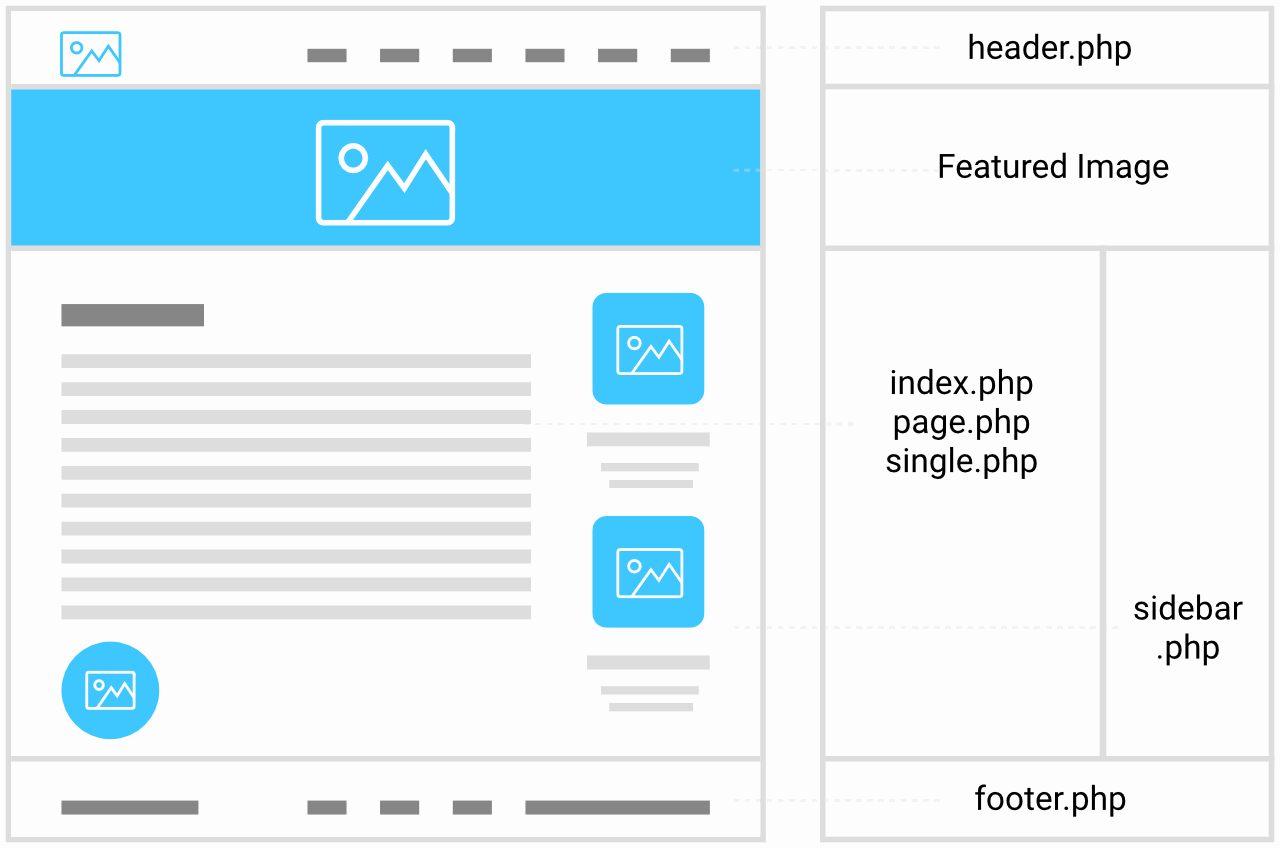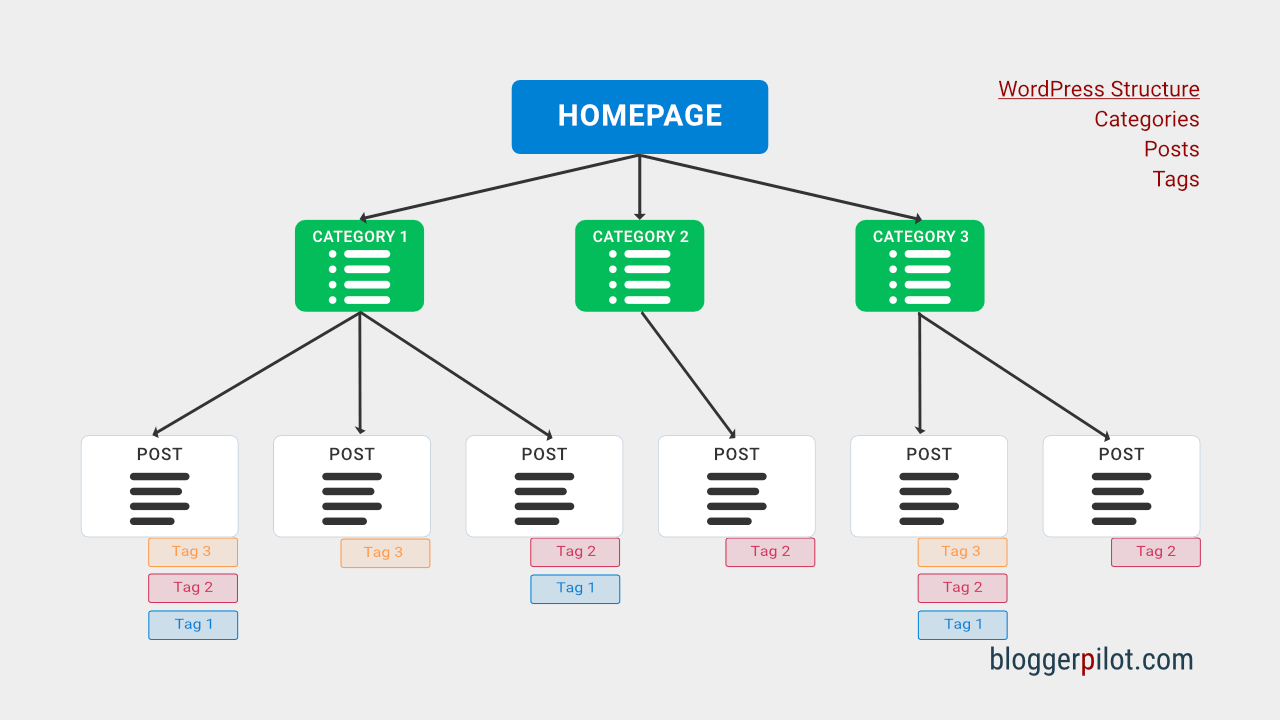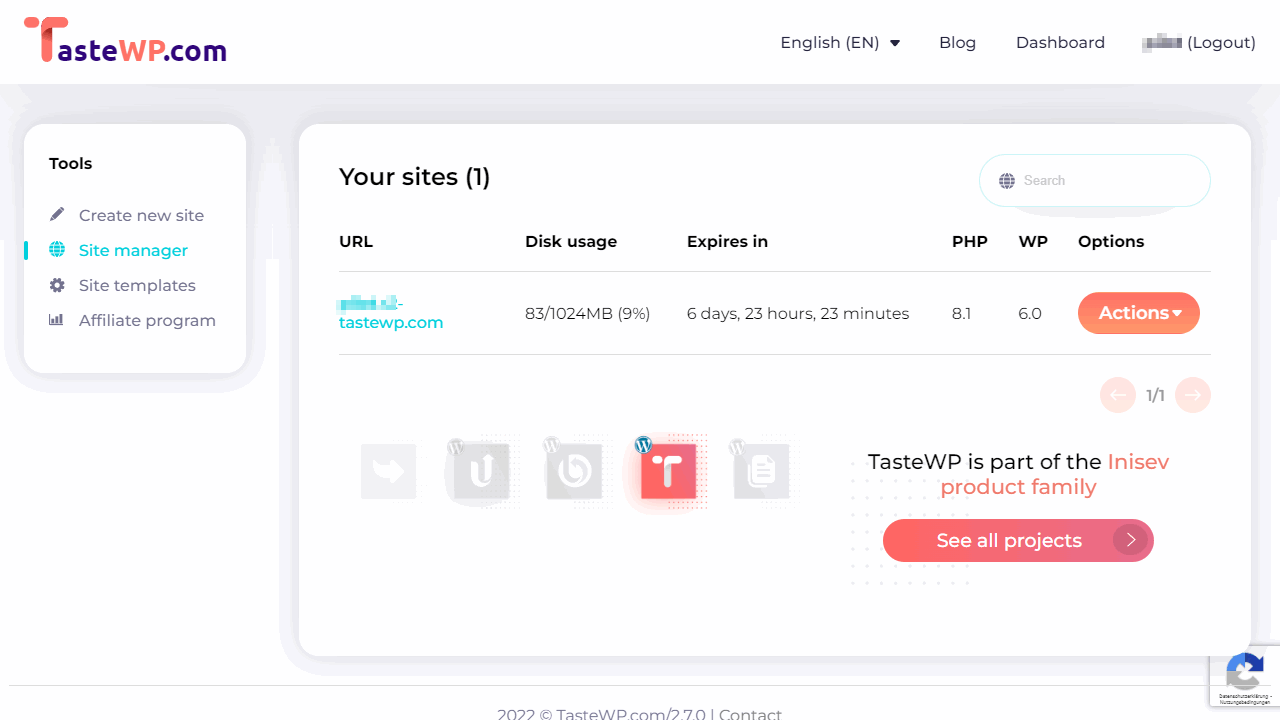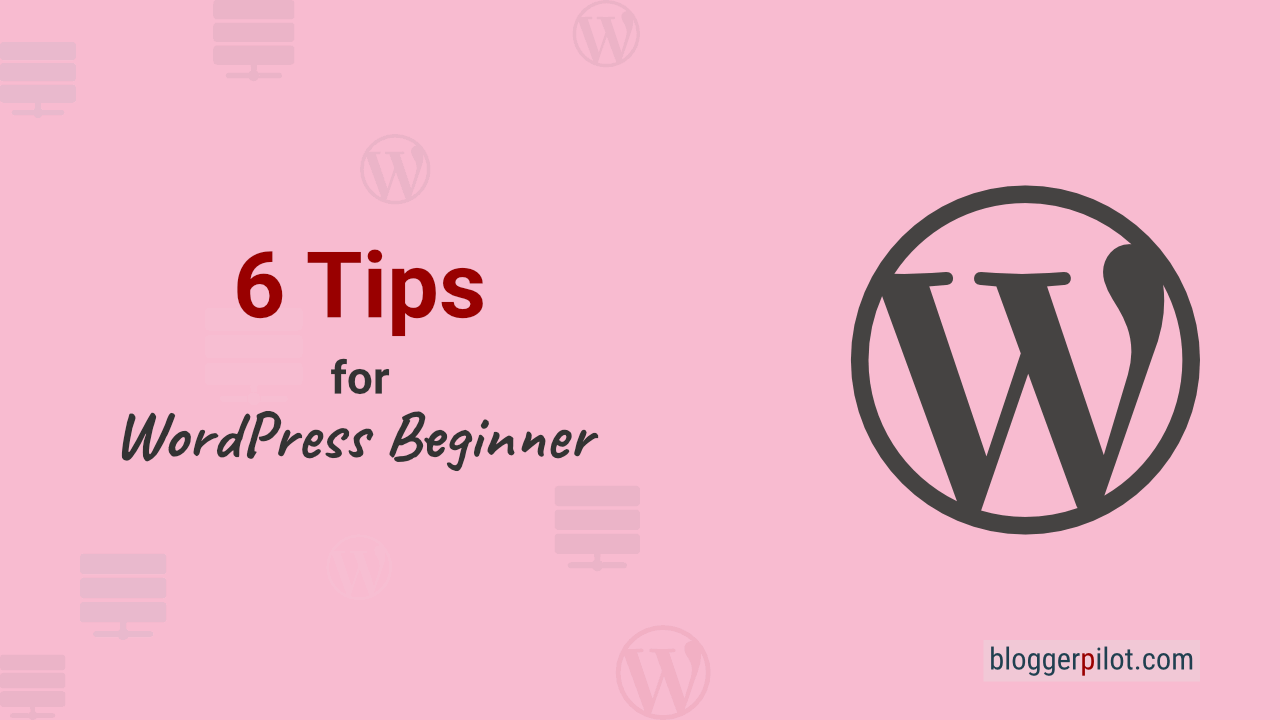6 tips for WordPress Beginners
6 tips that I would have loved to hear as a WordPress beginner and that I would like to share with you now. Especially for absolute newbies this guide is a must. Are you already longer at it, use my suggestions to make improvements.
- Making mistakes is in the nature of things.
- Mistakes are not that bad, because without mistakes we wouldn’t learn anything at the end of the day.
- The latter is what is really essential about mistakes.
Learn from them and do better next time. If you take this to heart, you can confidently make the wrong decision every now and then.
These 6 tips for WordPress beginners will help you to avoid the worst mistakes right from the start. A website is a complex undertaking. That’s why we want to give you the most important advice for your blog. Hosting, Plugins, CMS and much more you can find here.
As a WordPress beginner you make many mistakes and often this is because you simply do not know the content management system very well. How could you? Many don’t even know how it works or what a CMS is exactly, let alone have a clue about PHP, MySQL or hosting. WordPress makes it easy for you to get started even without such knowledge. Until the point where you run into problems.
So in today’s article, I’m going to give you six tips that I would have loved to hear myself as a WordPress beginner, but no one told me. Things simply that many only realize too late. So late that the implementation is no longer even considered.
This is not about WordPress settings, but much more basic content and steps.
WordPress for beginners!
1. Go for a better hosting from the beginning
The first tip deals with the topic of WordPress hosting. As a beginner, you tend to just not want to invest money. You don’t know yet if your blog will be a success and you have no idea how much performance WordPress eats up. Let me tell you: WordPress eats up a lot of server power and once you start taking your blog seriously, the time will come when the cheapest hosting package just won’t cut it anymore. You can be pretty sure of that.
Best WordPress Hosting
Hosting recommendations are usually garbage.
Often extremely cheap hosting packages for $ 3 are recommended, others advertise a $ 100 VPS, because they earn the most as an affiliate thereby. In the end, we all just want the fastest possible web space for as little money as possible.
And optimized for WordPress!
What else is important? The server should be a fast backbone for your website and the support should answer as fast as possible, and preferably in your language.
You can get all this at Cloudways from $ 10,00 / month.
So make sure that you can scale dynamically with the hoster without moving. This means that you can simply choose a larger package in the backend later and get an upgrade. WordPress hosters can usually do this and thus offer the possibility of scaling. Ordinary hosters distinguish between web space, V-server and root server. If you had to move manually, that would be a big problem for you as a WordPress beginner.
Therefore, my tip is to use a slightly oversized hosting from the beginning. After all, you assume that you will have success with your blog. Once this is well visited, the small packages are usually not enough. If you plan a little bigger right from the start, you’ll never have any annoying downtime or SEO problems in terms of performance.
2. Free is good, but premium is not free
With WordPress, there are extremely many free plugins and also many developers that help for small money. This sounds tempting for the beginner, but it is an absolute fallacy. Unlike many years ago, WordPress has now become very commercial. This means that every free plugin has a paid premium update or the really good extensions are not available for free at all.
The same is true for developers. Good WordPress developers cost money. So do high-quality plugins and themes. There are also many free ones, quite right, but who created them? Theoretically, Grandpa could read tutorials in his spare time and develop WordPress plugins for his blog, which he then makes available to all. The question remains how safe and good they are and whether they will still work in ten years. Probably not, so I would leave the fingers of it.
Of course, all this does not always have to be true. But frighteningly often the free stuff on WordPress is not necessarily recommendable. Also, because after a few years updates are missing or support is discontinued. This has happened to me more than once and I would therefore pay extreme attention to who exactly offers what and how and how he wants to finance the project or keep it alive. If there is no open source strategy with multiple developers, this can always end up tricky. Then I prefer to pay and know what I get for it. Namely regular updates and long-term support.
In the beginning, free usually seems to be more important. But believe me, you’ll rather pay for it later when you know it works. Far too often by that time you’ve been annoyed by extensions that were free but caused problems with every WordPress update.
3. Learn to understand the technology behind WordPress

Beginners often have no idea of what WordPress is and how a content management system works in detail. All they know is that it is used to create blogs and websites, and to do so quickly and easily, almost like writing a page in Microsoft Word. That’s true, but you should still look behind the facade a bit.
You don’t have to know PHP, but understanding the commands in the theme just takes some learning. Forums will help you with that and there are also many blogs and information about WordPress. So reading helps enormously here to master simple basics and understand how WordPress works as a CMS, what PHP is and how a database works.
In the end, you don’t need to become a pro, but you should already know roughly how it all ties together. Don’t worry, as mentioned, this really only requires some learning and is not witchcraft. You just have to want to do it.
4. Less is often more with WordPress
WordPress as a CMS is very extensive and meanwhile anything but fast or even performant. As a beginner, you also tend to install a plugin for every idea. A widget with the latest Instagram posts would be cool – Zack is the appropriate plugin installed. Oh and now a banner under the comments – Zack the next plugin. This often goes on and on and suddenly twenty extensions are active. With the Kadence Theme you already have such things.
INFO: Less plugins for more speed
The better you know your way around, the more you will also switch from plugins to small snippets and fill functions.php with them. But you should be really careful with that, just like with installing many plugins. The simple rule of thumb with WordPress is that the more plugins you install, the slower your blog will be and the more security holes you’ll get. Each snippet also ends up being not much more than a plugin of sorts.
As I said, this isn’t true in every case, of course, but it’s a good rule to follow as a beginner. Less is almost always more with WordPress.
5. Think carefully about the page structure
If you create a WordPress blog as a beginner, you don’t know a lot of things yet. The also does not know a lot of things and so he first decides on tags or categories. Most tend to create too much of everything. Therefore, here is the next hint: The shorter the URL is at the end, the better. The fewer categories there are, the better. Quite simple, actually.

This is because visitors should not be overwhelmed. There are studies and tests that recommend that only seven to ten categories should be displayed in the menu. Everything else overwhelms again, which is why visitors disappear before clicking through. It’s actually like that or something like that, and that’s why it’s important to think carefully about the page structure beforehand.
So don’t just blindly create a new category for every topic, but think about which one really makes sense beforehand. A mind map helps you to visualize your page accordingly. What really makes sense and what rather less?
6. Do I really need WordPress?
Finally, a note on WordPress itself. For a website you don’t necessarily need WordPress. For a blog likewise not. There are other CMS that work well. So the question every newbie should ask is what is the added value? What does WordPress bring you that you absolutely want to use it?
Why do you need WordPress? Why should your blog or website use WordPress? In the long run, WordPress is really good for many beginners just because it’s easy, but some also realize later that WordPress is more of a drag than a real benefit because of its complexity. It all depends on what you want to do with your website.
Tip: Use a WordPress backup plugin!
Bonus: Use TasteWP as a test website

I’m always testing new plugins and themes when I need a new feature or want to replace an existing product. In the past I just did that on my live blog and cluttered up my thing with it. I don’t do it that way anymore!
I use the service TasteWP for this, with which you can create WordPress test instances, which are then maintained for 7 days. You can even keep these WordPress installations permanently. There will be several options for this in the future.
Check out this awesome feature:
Take any plugin repository URL like https://wordpress.org/plugins/jetpack, replace “wordpress” with “tastewp” so that the URL is https://tastewp.org/plugins/jetpack/, click on it and it will set up a free WP instance with the plugin already installed!
The same works with themes: https://tastewp.com/themes/(themeslug)
This is just perfect to test new plugins and themes!
WordPress for beginners: Now it’s your turn
Those were my 6 tips for WordPress beginners. Now I wish you a lot of fun to implement your first WordPress blog and get active. The content management system is great, no question, at least if you deal with it a little more extensively. But this is also necessary and should not be underestimated. After all, you don’t drive a car without understanding what the gas pedal or the steering wheel do. How an engine works, on the other hand, you don’t necessarily need to know.
This is somehow also true for WordPress. The experts and developers can take apart the “engine” for you, but you only need to know the basics to be able to “drive”. Take the little metaphor with humor and work yourself in a little bit, because there is no driving school for WordPress after all. But there are enough instructions for that.
Service: Are you having problems with WordPress?
I wish you all the best for the future. If you have questions, uncertainties or gaps in your knowledge, my blog will definitely help you. Just have a look around and read a little bit. Have fun, and don’t forget, you need great content too!
Read on… create your own website.
